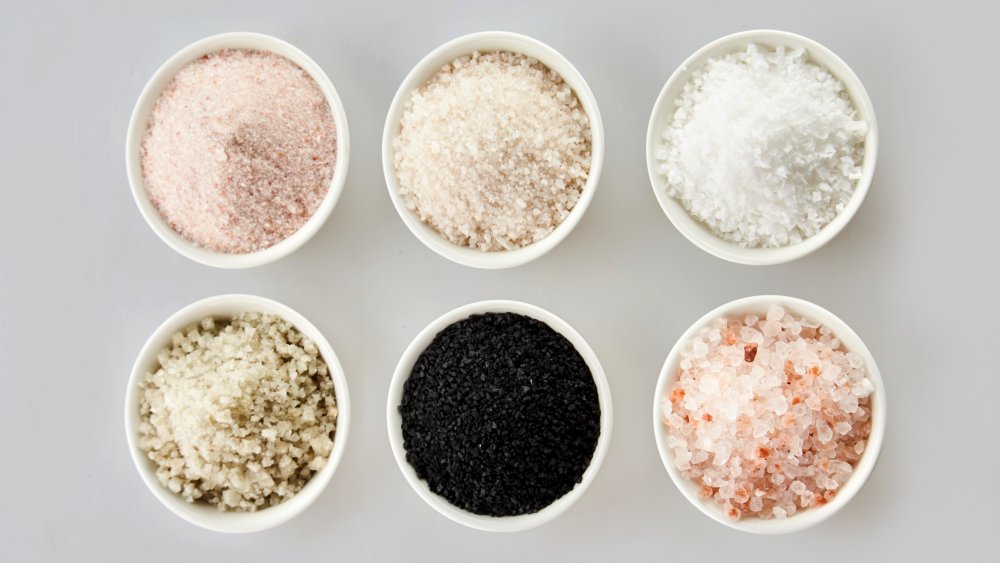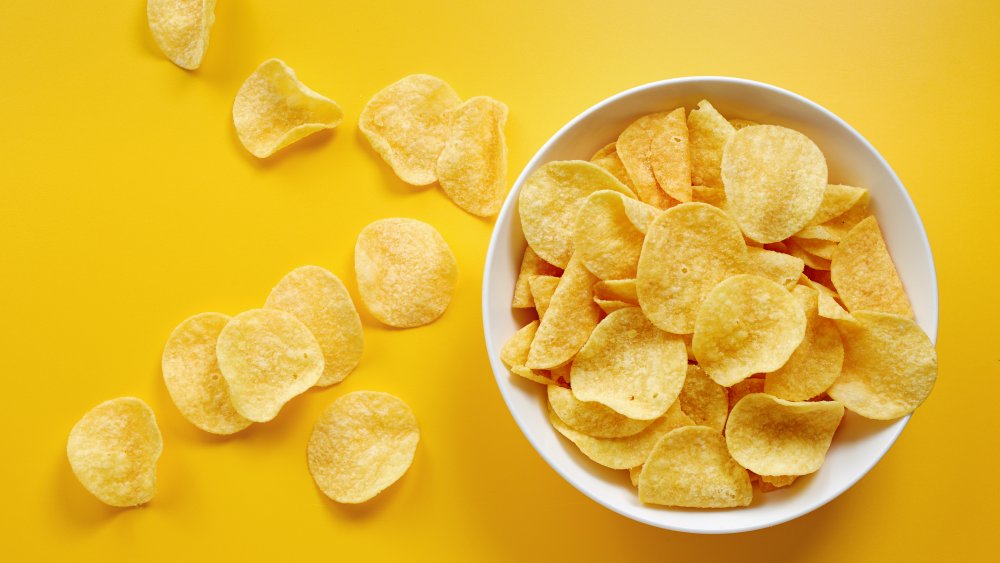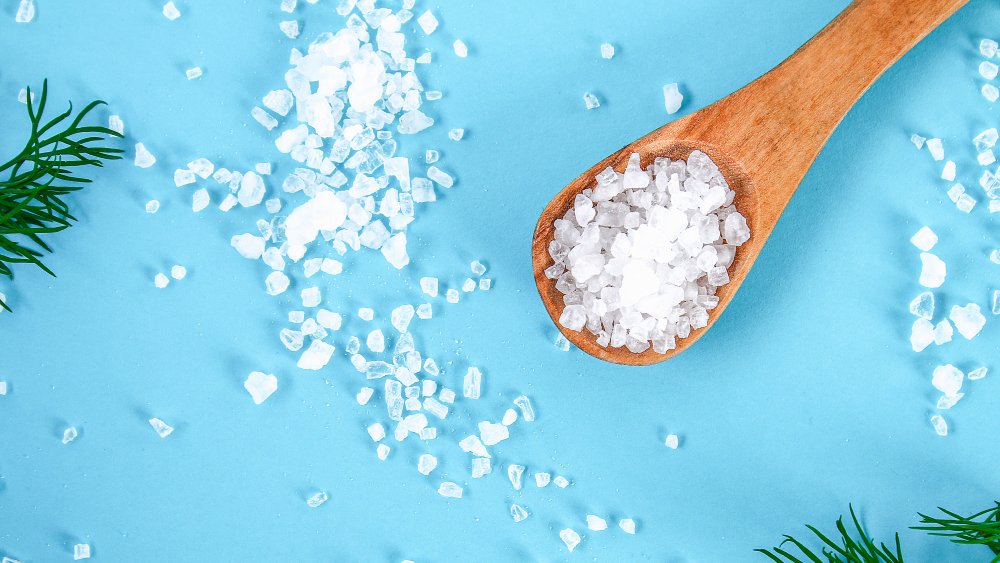Here's What Happens When You Eat Too Much Salt
Sodium gets a bad rap and understandably so. But despite the drawbacks of eating too much sodium, your body actually needs the chemical element in order to function properly. It aids in muscle control and keeps your bodily fluids in balance. And you can actually end up with a salt deficiency: hyponatremia can happen when you lose too many electrolytes or drink too much water while exerting your body, according to Mayo Clinic. Simply put, you need salt to survive.
Now that we've made you feel a little less guilty for eating that giant, salty soft pretzel you indulged in the other day, let's get to the scary part. Sodium is necessary for the body's function, and salt is an irreplaceable seasoning for food, but eating too much salt has some severe consequences. On a short-term basis, eating a salty meal or a day's worth of overly salty food can leave you feeling bloated, a little swollen, or extremely thirsty, according to Healthline. In the long term, it can do a lot more damage.
Under pressure
"There is a fairly undisputed effect of sodium on blood pressure," according to Nancy Cook, a professor of medicine at Harvard University. When someone consumes too much sodium, the heart has to pump blood with more effort, putting literal pressure on blood vessels (via Harvard Health Publishing). And if you already deal with high blood pressure for other reasons, consuming too much salt can make things even worse, according to Healthline.
Sure, that's not the most drastic effect, but it can lead to chronic, life-threatening problems if high blood pressure gets out of hand. According to WebMD, high blood pressure adds stress — literal, physical stress — on your heart and arteries. That can lead to heart attacks and strokes, to name a few.
But the good news is that reducing salt can make a sizable difference and help lower high blood pressure. And reducing your salt intake is possible, especially if you opt for fresh fruits and vegetables and season your food not only with salt but with spices, according to Mayo Clinic.
It's more than the pressure
Your blood pressure might not change with overconsumption of salt. But that doesn't mean there isn't a harrowing handful of other sodium-related health risks. In 2015, researchers assessed existing evidence and found that too much salt can affect your kidneys, your heart's main pumping chamber, and even your nervous system (via HealthDay News). A 2010 study published in Physiology & Behavior found that excess salt can harm the brain and change the reactiveness of the rostral ventrolateral medulla, which controls fight-or-flight responses, among other things (via Cellular and Molecular Microbiology).
If you're panicking, or frantically emptying your salt shakers into the garbage disposal, there's no need. The Food and Drug Administration pegs the daily value for sodium at 2,300 milligrams. It's about one teaspoon of salt. That can sound intimidating at first, but when you think about it, how often are you dumping a teaspoon of salt onto your meal?
That's why it's crucial to read labels and understand how much salt each food product contains. Yes, it's tedious. Although the ingredients seem to go on forever, you might be able to spot a high amount of sodium in something that didn't seem so salty to you, like your favorite canned soup, baked beans, or salad dressings, according to Healthline. Try making your own broth, while you're at it. Store-bought broths can be sodium-rich, but you can control the amount of sodium in your own, tasty homemade version.


